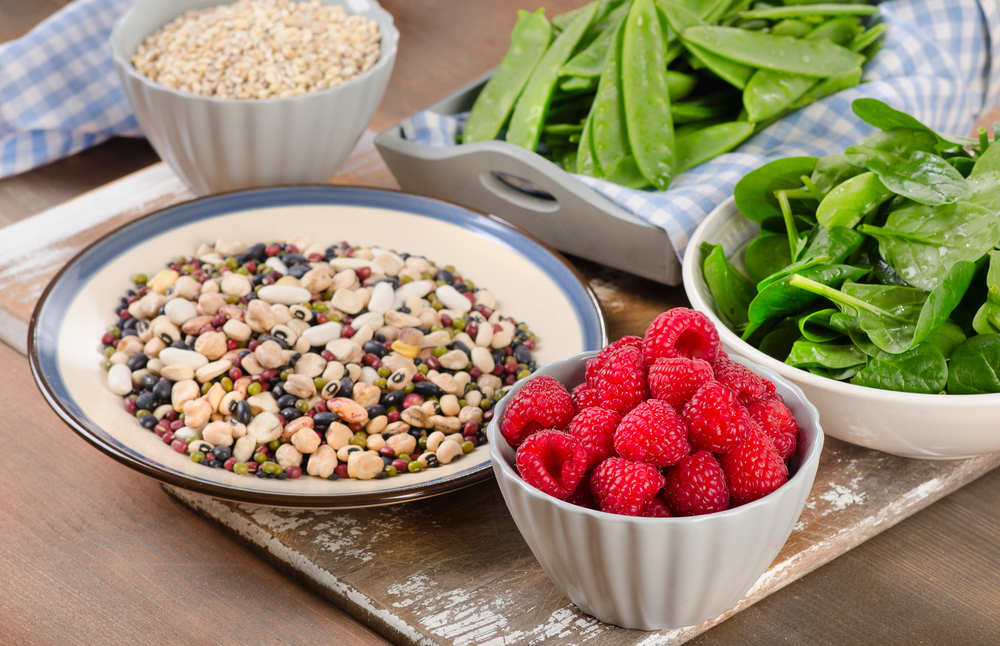There are 3 basic ways your body excretes wastes and gets rid of things you either don’t need or are harmful to your health (toxins, excess vitamins, etc):
- Sweating
- Bowel Movements
- Urination
FIBER is the key to healthy bowel movements. It pushes food through your digestive tract, draws fluids from your body and adds bulk to your stool. It keeps your digestive system working properly, making sure your body eliminates the waste it doesn’t need. Read about the basics of fiber here.
Ideally, 25-40G per day of soluble fiber (fruits, veggies, nuts, whole grains) is beneficial because it slows down digestion to keep you full and levels regulated. How does this happen? The bacteria and microorganisms in your colon (probiotics) digests the fiber you eat. The dietary fiber then dissolves in water, which becomes a gel in the gut and helps slow down digestion. Without enough fiber, your body reacts with inflammation. Fiber balances your gut by increasing good bacteria and decreasing bad bacteria. It helps your bowels function normally and balances your cholesterol and blood sugar levels.
***Keep in mind that daily doses of 15 grams or more may cause an upset stomach or diarrhea until your body adjusts to higher amounts. Gradually increase your intake slowly and observe how your body reacts.
Insoluble fiber (cereals, fortified foods) doesn’t dissolve in water, but it does make your waste heavier and softer so it can move through your intestines easily. Although insoluble fiber doesn’t have prebiotic properties, it still plays a large role in maintaining a healthy gut and digestive system.
Here are some examples of whole foods and their fiber content:
- 1 apple, 1 cup blueberries, 1 banana, OR 1 orange = 3-4 grams
- 1 cup broccoli, brussel sprouts, collard greens, OR swiss chard = 4-5 grams
- 1 russet OR sweet potato with skin = 3 grams
- 1 ounce pistachios OR almonds = 3 grams
Here are some examples of how to get your beneficial daily intake of fiber:
- 1 apple + ½ cup oats + 1 cup broccoli + 1 cup lentils + 1 cup blueberries = 30 grams
- 1 apple + ½ cup oats + 1 cup brussel sprouts + 1 cup pinto beans + 1 cup blueberries + 1 sweet potato (3) + 1 cup peas (9) = 41 grams
Here are some heavy hitters when it comes to whole food fiber:
- ½ avocado = 7 grams
- 1 cup raspberries = 8 grams
- 1 cup guava = 9 grams
- 1 medium artichoke = 10 grams
- 1 ounce chia seeds = 10 grams
- 1 cup lentils = 15 grams
Each person’s approach to gut health will vary because our lifestyles are unique. Incorporating protein and fiber as primary aspects of any gut health plan will lead to effective results, but this requires major life changes that you may not be ready to make. That is okay, your body is very resilient and there is a lot you can do to support your mental and physical health at any age. The key is being mentally ready to commit to changes that will support you through aging and long-term wellness.
Follow us on Facebook, Instagram, and LinkedIn, for cancer health and wellness support. Feel free to email us at [email protected] with specific questions or if you need help with health planning.
Sending you health and strength always,
Cindy & The Cancer Team

